Good Friday Appeal: More training, resources for regional hospitals
Under-resourced regional hospitals will be given specialised equipment and training as part of the Good Friday Appeal, ensuring better services are available for families in the regions.
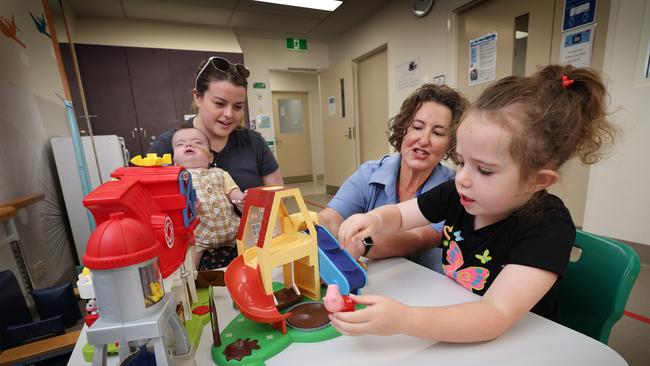
News
Don't miss out on the headlines from News. Followed categories will be added to My News.
The carers of very ill kids face an unfairly tipped set of scales. Hope collides with despair, and chronic stress competes with the fear of the unknown. The next crisis always looms, or so it seems, often amid family and financial upheaval.
There can also be the tyranny of distance, given that acute care in Victoria is handled in Melbourne. The furthest reaches of the state are five or more hours from the capital, in what can blur into a never-ending road trip. Week after week. Year after year.
Take mum Maria Farrugia. Her daughter Violet was born with a bowel obstruction and a vascular ring, which impedes her breathing.
Violet, at 21 months, gathers toys when she isn’t shimmying to the Wiggles. She started life with surgery at three-days-old. Her most recent procedure, in January, aimed to relieve pressure on her windpipe.
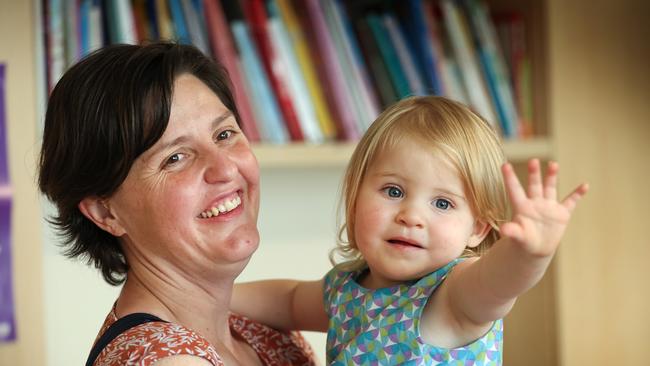
Violet had a gastroenterologist appointment last week at 10.40am. If it was in in Ballarat, near home, Maria would be free to go about her day from about 11am.
Instead, by going to the Royal Children’s Hospital, she had to drop off Violet’s older brother Asher, then brave the city traffic to get there on time.
The back and forth is routine, as was the entire day being a write-off, especially for Asher, who associates a hospital visit for his sister with the indefinite absence of parents.
“The number of times we’ve gone to the hospital and had to stay there,” Maria says. “You can see it’s had an impact on him.”
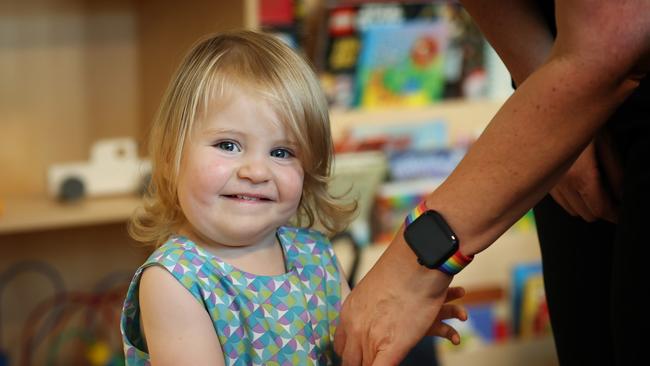
Families have to prioritise the health of their ill child. Sometimes, they will be split – someone has to earn the money at home. Even with subsidies, fuel can be prohibitively expensive. Siblings feel overlooked if they do not go and bored if they do.
A new impetus for this Good Friday Appeal seeks to shift the difficult dynamics for those who live beyond Melbourne’s sprawl. What if some procedures that had until now demanded a Melbourne trip or stay could instead be handled locally?
Five regional health hubs, from Portland in the west to Mallacoota in the east, have prioritised their needs. Drawing on $2.5m from the Good Friday Appeal, each region will be given equipment, training and know-how.
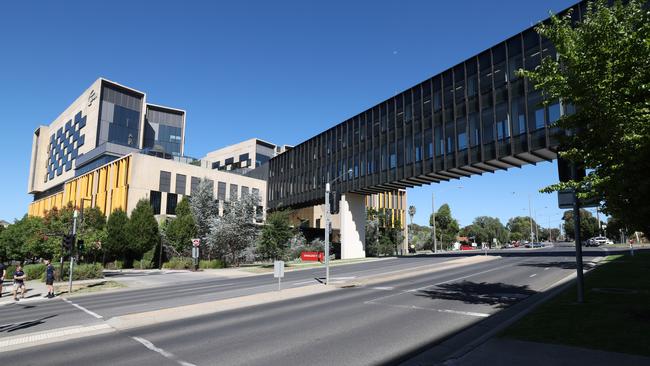
Requests include more eating disorder training and care in Geelong, a fleet of premature baby resuscitation cots in Ballarat, and a new hospital playground in Bendigo.
Regional Victoria, for all its delights, also boasts underprivileged communities. The Goulburn Valley has high Indigenous and refugee populations. Mental health issues, and delays in treatment, can be compounded in Gippsland by isolation.
As Latrobe Regional Health chief executive Don McRae says: “This is about delivering as much service as possible to people as close to home as possible. When someone is unwell, the last thing you want to do is be away from home.”
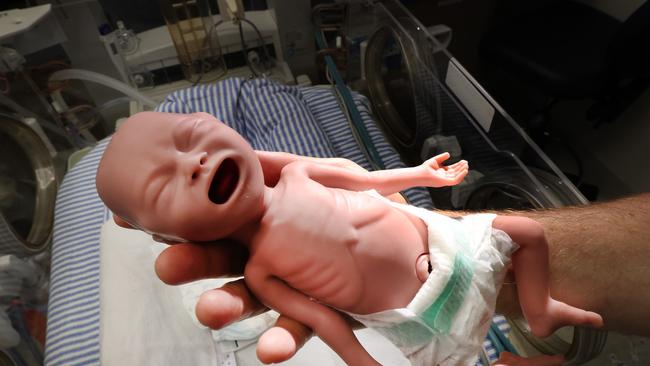
There was little warning of Archer Wulms’ early arrival at 27 weeks. He “just decided to come out”, says mum Tonya, to spend the first 140 days of his life at Monash Children’s Hospital.
When father Wade returned to his factory work, Archer’s medical setbacks would compel him to rush to Melbourne. But being there wouldn’t pay the bills.
At seven months (or four months, per his “correct age”), back home in Moe, Archer’s days are a procession of specialists in Melbourne, and allied health supports, such as physio, in Traralgon.
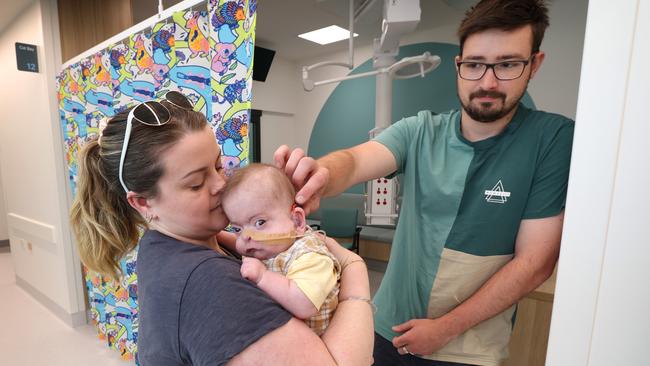
“You get pregnant, think that having a baby will be great, that your Mum will come around now and then,” Tonya says. “You don’t expect to have to see medical professionals every day. I drag him back and forth every day to different appointments. Being a new parent is one thing, but having all this on top is terrifying.”
It’s this kind of chaotic scenario that the regional Good Friday Appeal funding seeks to soften.
McRae says he was “pleasantly surprised” when he took a phone call not long ago from the Royal Children’s Hospital chief executive Bernadette McDonald.
He points out that regional people will appreciate their generous donations (almost $3 million in last year’s appeal) going towards local services.
In Latrobe, the special care nursery will grow to 14 cots. Money will also go to training for what will be Gippsland’s first neurodevelopment outpatients clinic. It will also assist in early diagnoses for neurodevelopment problems, such as autism.
“There’s one health system in Victoria and the more we can do in the regions the less pressure that puts on metropolitan services,” McRae says.
“When a tertiary centre like the Royal Children’s Hospital says they’re going to invest in regional Victoria, it makes us feel like part of the family.”
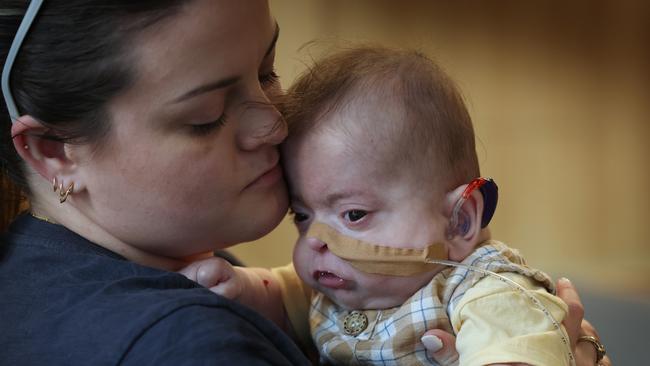
Ivy Butler hates needles. She sensibly stopped counting the injections after 35.
She’s 10, heading into grade 5, and the promise of a school camp to Phillip Island, although she frets about the arrangements for her medication.
In 2016, she got encephalitis, first vomiting then becoming unresponsive. The family was told that the next 12 hours would be critical after Ivy was rushed from Shepparton to the Royal Children’s Hospital, and intubated.
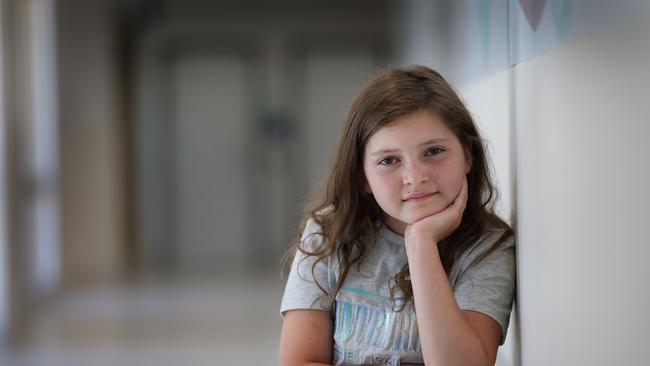
She stopped breathing briefly in the days afterwards. When the inflammation of the brain receded, her family was warned that epileptic seizures might be a long-term side-effect.
These would take the form of hallucinations, which she remembers, such as the little men jumping off her ceiling fan, and the cow barbequing another cow.
Seizures can be daily. Ivy hasn’t responded to various medications, and urgent hospital visits to Shepparton – and IV drugs – can happen three or more times a month. She is also trying new medication, the first round in Melbourne, then subsequent rounds in Shepparton, in a shift which eases the family logistics.
The Goulburn Valley will receive new equipment, such as a Continuous Positive Airway Pressure machine, to help sick kids to stay near home, and to help avoid patient deterioration during hospital transfers.
Paediatric nurse roles will be created in emergency, while the region’s Hospitals in the Home care program will be extended, so that long-term therapies can be treated at home, which also frees up hospital beds for more complex care.
Goulburn Valley Health chief executive Matt Sharp welcomes strengthened ties with Royal Children’s Hospital staff as “pretty exciting” and a “terrific outcome”.
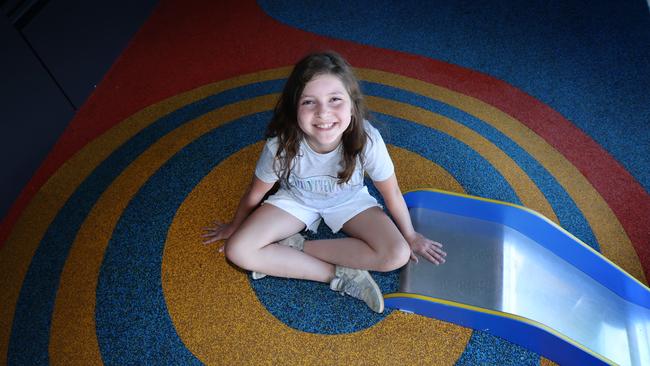
Barwon Health has requested a video laryngoscope for the south-west, which allows for the intubating of premature babies while senior colleagues can watch on a screen elsewhere. There will be newborn baby resuscitation training and point of care ultrasound training and equipment.
The funding will also focus on the rise in eating disorders since the pandemic.
Patients younger than 13 are presenting for help.
Barwon Health’s women’s and children’s clinical director, Associate Professor Dave Fuller, blames the loss of protective factors, including school, as well as the harmful effects of social media.
Paediatric nurses will be trained in adolescent mental health. As Fuller explains: “Nursing staff face the brunt of it. They’re facing a lot more of it and it’s much more wearing for them, so some specific training for them helps deliver better care but, just as importantly, also to not get burnt out.”
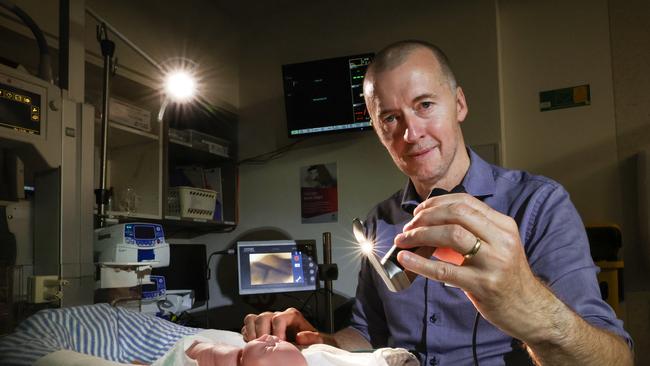
They nearly lost Janessa Neblett at nine months. Bronchiolitis had set in; a doctor “bagged” her to breathe for the ambulance trip from Ballarat to Melbourne.
She had been born at 23 weeks, at 523 grams, almost seven times less than an average baby. Her grandmother, Stephanie, a nurse and midwife, knew the possible complications that loomed; heart and bowel surgeries, sight and hearing issues, developmental delays.
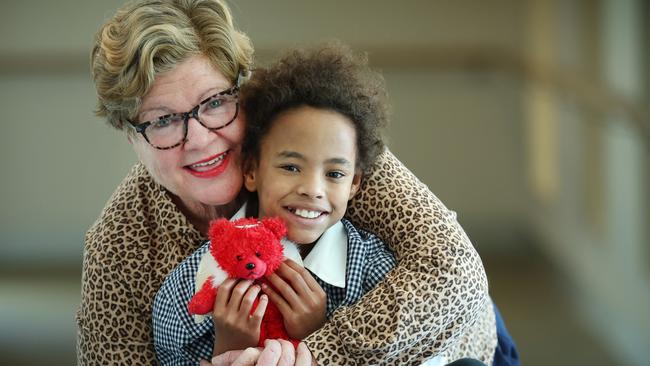
Janessa got through the bronchiolitis and, later, bouts of asthma. There were the feeding tubes and attendant rashes and welts. Some slight cerebral palsy from an early brain bleed.
It was a crazy dance for her grandmother; besides Janessa’s needs, Stephanie’s son was (successfully) battling non-Hodgkins lymphoma at the Royal Children’s Hospital.
“I’d go up the hill to him, then down the hill to see her,” she says.
Grampians Health will invest in a new fleet of resuscitator cots, which provide breathing support. The latest maternal ultrasound will help with complex scans while ageing anaesthesia machines will be replaced.
Says the co-head of Grampians Health Paediatrics, Associate Professor Shabna Rajapaksa: “This is a great opportunity to celebrate the connection we have, versus thinking that I can only get good care at the Royal Children’s Hospital in Melbourne. We couldn’t do what we do without them. And vice versa.”
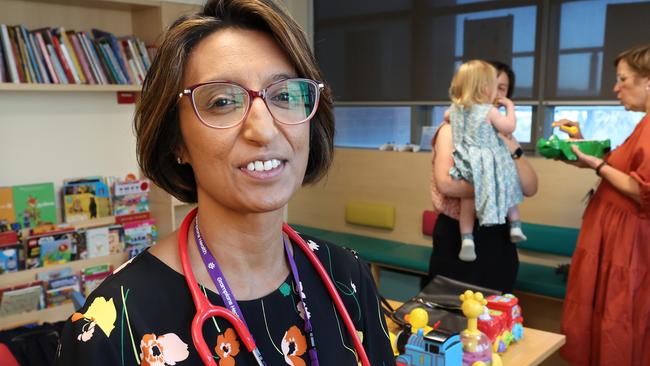
Grampians Health chief executive Dale Fraser marvels at the increased capacity for the “clinical arsenal to provide care close to home to those who are most vulnerable”.
Over four-and-a-half years in her grandmother’s care, Janessa has had one night in hospital.
She has been spared the surgeries so common after a premature birth. “She’s quite a miracle that she is so comprehensively living her life now,” Stephanie says.
“We’re very, very lucky.”
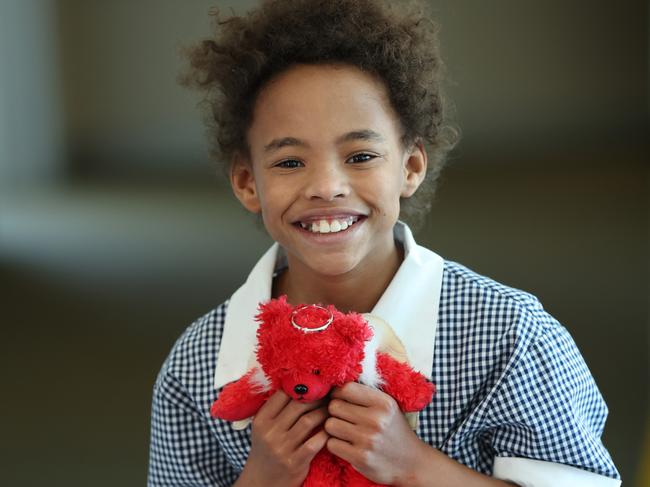
Chloe Gardner likes to explore her surrounds. At two-and-a-half, she is blossoming. The focus is on her speech and mobility in her “helper hand” on the right side of her body affected by cerebral palsy.
Diagnosed at nine months, mum Sophie understandably feared the unknowns ahead. But therapies sessions at Bendigo Hospital, as well as regular catch-ups there with paediatricians, have helped dispel some worries.
“We’re lucky,” Sophie says. “We can do it all locally.”
Sophie seems likely to be a regular at a rehab playground which will be built at the Lucan St hospital under the funding, which will also go to training for nursing, allied health and intensive care.
Bendigo Health chief executive Eileen Hannagan says the playground will assist those families who bring kids for therapies for months or years.
Parents of sick kids face the conflicting needs of siblings who weary of the medical schedule. “If you haven’t experienced it, you wouldn’t understand,” she says. “I wonder how I would have dealt with that as a busy working mum if I’d faced those kinds of challenges.”
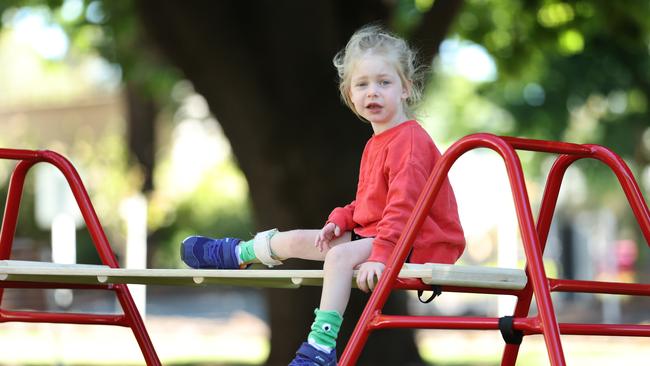
Audrey Butterfield couldn’t wait for school to begin: throughout summer, she regularly donned her uniform and asked if it would be tomorrow.
School has been the focus of the past 12 months of therapies; balance, speech, writing and fine motor skills.
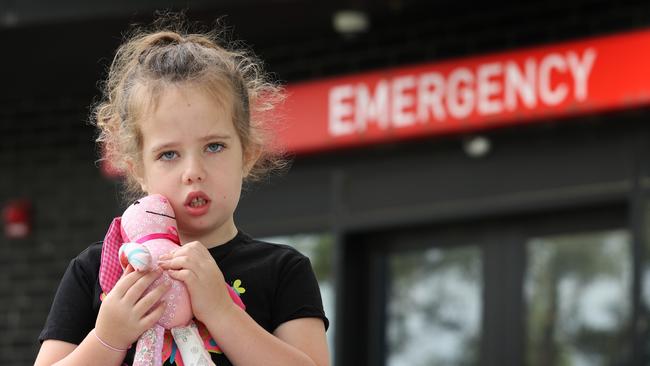
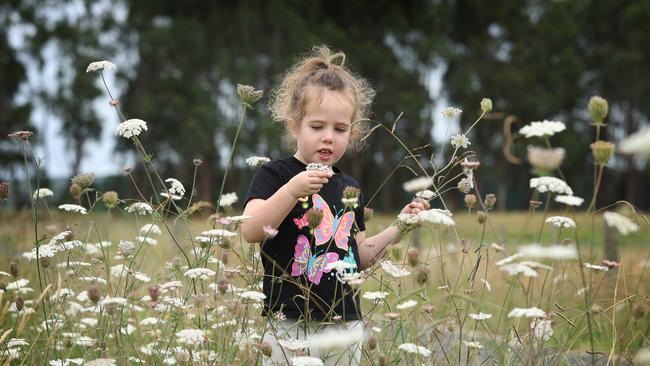
Audrey has a neuromuscular disease, which affects her intellectual and physical development. Specialist trips to Melbourne, more than two hours away, have punctuated her life.
Mum Raechelle is optimistic that scientific breakthroughs will soften Audrey’s uncertain future. For now, she is “celebrating the successes of the moment”, while welcoming of the Good Friday Appeal initiative.
When she says that more local services will mean better outcomes for her darling child, she is speaking on behalf of every Victorian parent.



